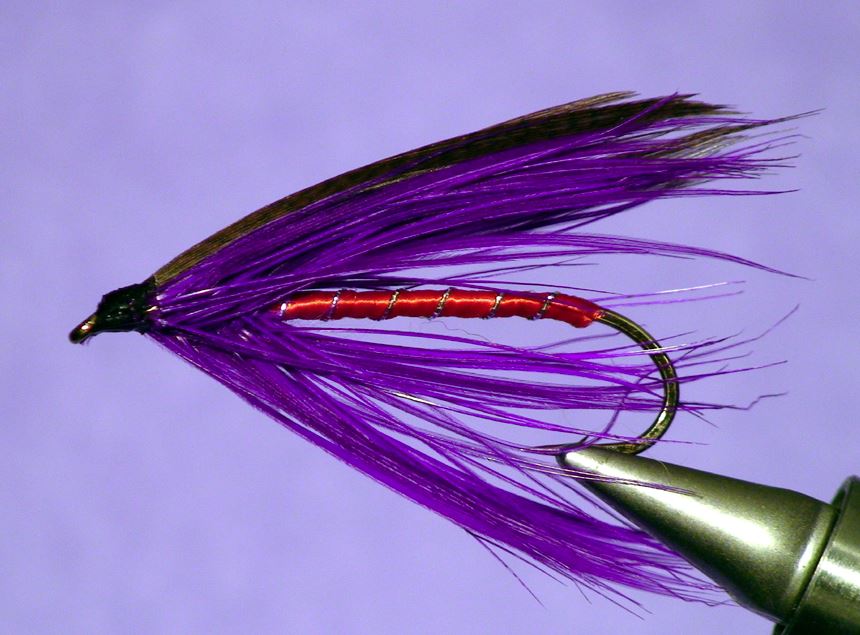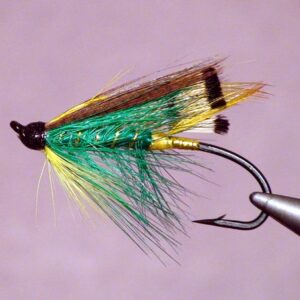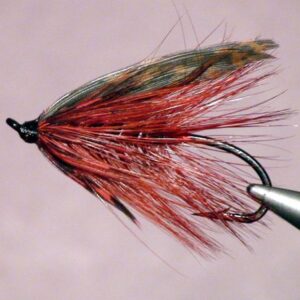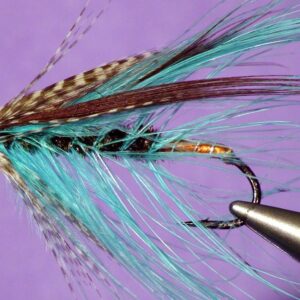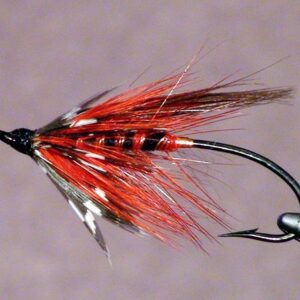Hook size 1/0
The Black and Purple Spey Fly has been a popular Spey Fly for a long time. We’re not
exactly sure who came up with the original fly pattern. It is a popular color combination
used for Spey Flies. There’s many variations of this color combination that’s different fly
tiers have used to come up with their own Black and Purple Spey Fly patterns that are all
very similar. It’s a proven color combination that’s very effective fly for both steelhead and
salmon.
As with most Spey flies, the Hot Peacock Spey fly is fished on the swing. It is a very
effective fly pattern to use for both steelhead and salmon on the Great Lakes rivers as
well as the streams of the Pacific Coast..
Original Spey Flies versus Modern “Perfect Fly” Spey Flies:
There’s a lot of controversy about exactly what a Spey fly is and for that matter, even
exactly what the Spey method of fishing is. Spey flies were originally designed and tied
for fly fishing the Spey River in Strathspey region of Scotland during the 1700’s or early
1800’s. By the middle 1950’s, Spey flies were beginning to be popular in the United
States. Although they were first used in the U. S. in the Pacific Coast steelhead streams,
they soon were equally as popular for the steelhead and salmon in the tributary streams
of the Great Lakes. This day in time, Spey flies are used worldwide anywhere there are
streams with various species of salomonids.
Spey flies are both classy and effective flies. The original ones varied considerably. They
were developed from local materials that had similar characteristics. The long, flowing
style of hackle fibers were obviously selected to appear to swim as if they were alive. The
flies were dressed sparsely and had very slender bodies. The first Spey flies used drab
colors of materials. The wing material, usually mallard flank or turkey quill feathers, was
tied in at a low angle in relation to the hook. At least some of the material used in the
original Spey flies came from heron. It’s illegal to use heron feathers in the U. S.
Today’s Spey flies that have evolved from the original Spey flies of Scotland wouldn’t be
considered at all similar if it wasn’t for the use of long sparse hackle. Substitute materials
such as Ringneck Pheasant and Schlappen feathers are commonly used materials. In
most angler’s opinion, it’s the length of the stems and fibers that’s most important in
making the Spey flies attractive and effective. We feel like our Perfect Fly Spey patterns
follow the original designs enough to be true Spey flies, but more importantly, are fly
designs with an artful taste that are very practical and effective at catching fish. The
materials used aren’t necessarily drab. In some cases brilliant colors are used.
